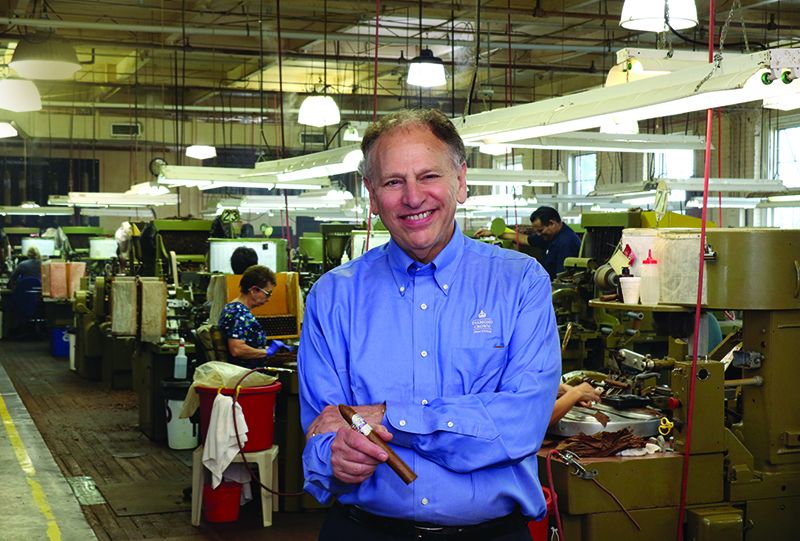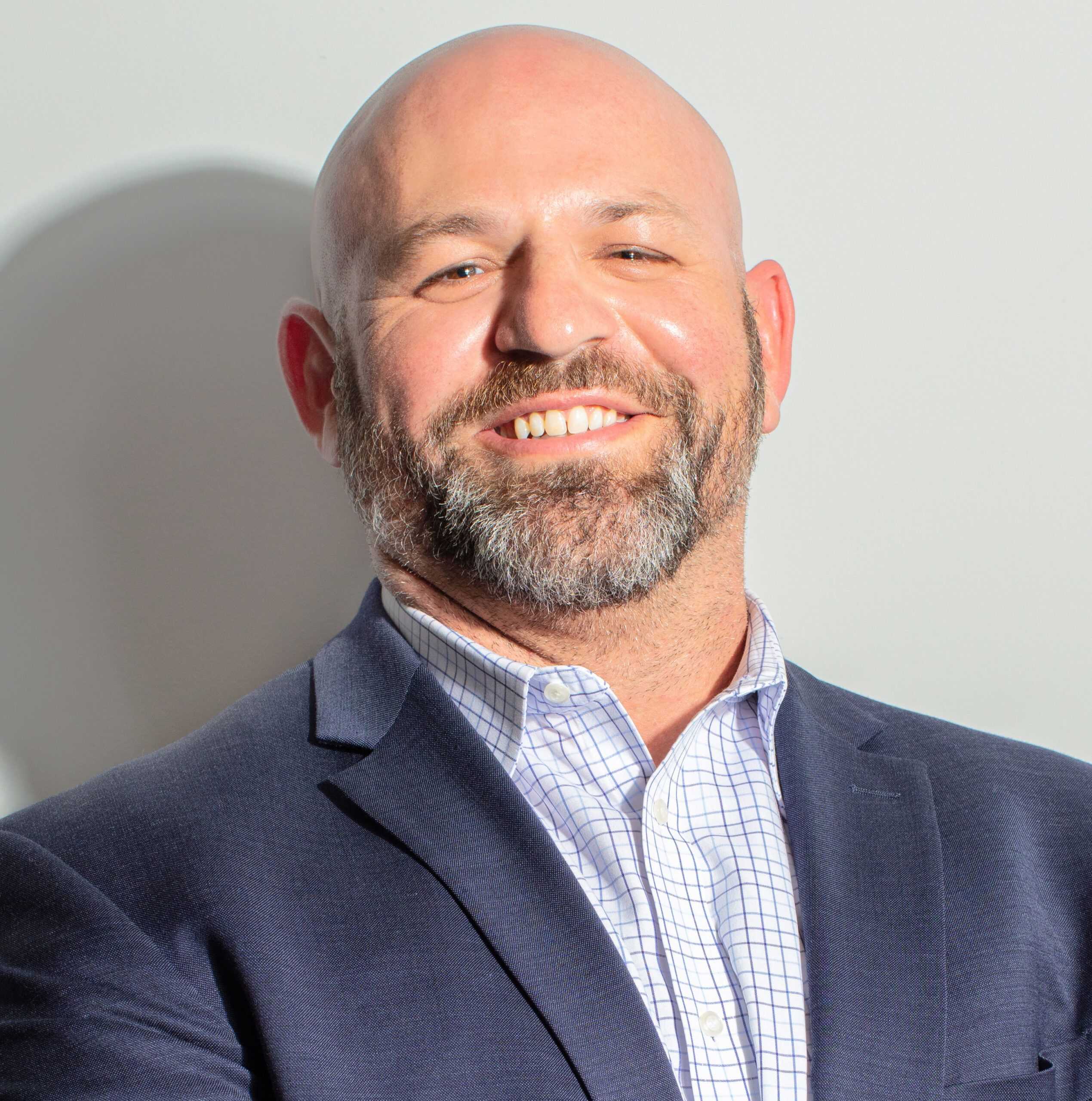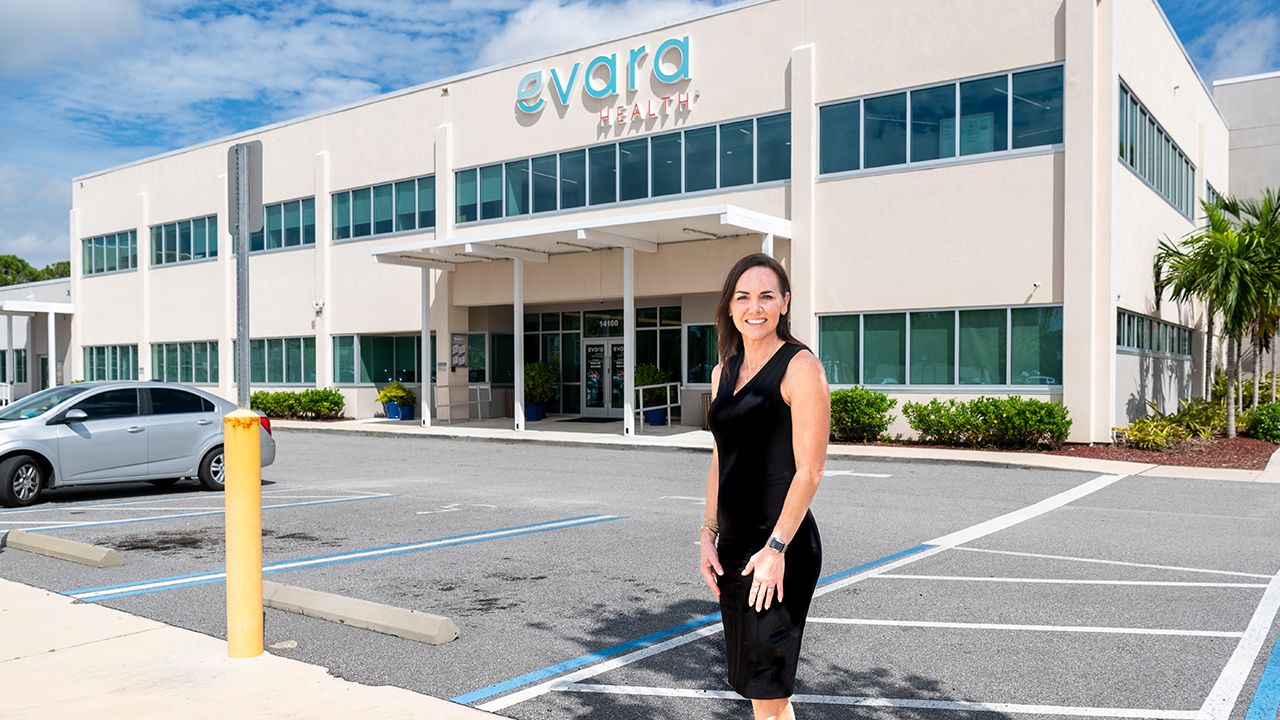Upon meeting Eric Newman, what strikes you immediately is his affable and humble demeanor. As the president of J.C. Newman Cigar Company, the oldest premium cigar company in the United States that is still owned by the founding family, according to a 2012 Cigar Journal story, Newman could take himself pretty seriously. But he doesn’t.
He’s welcoming and approachable and never takes his success for granted. As he tells it, he feels blessed to make a nice family living and a job that he loves. “I feel so fortunate that I love what I do,” he said. “I love the challenges of business, and I love making a product that brings a smile to peoples’ faces.”
That passion for premium cigars and people is evident as Newman walks around the family’s landmark factory in Ybor City, a classic red-brick building called El Reloj (Spanish for “the clock”) for its large clock tower. His face lights up as he chats with employees, some using machines made in the 1930s to roll cigars, while other craftsmen roll by hand at impressive speeds. As he jokes with employees and asks about their families, it’s clear his heart and soul is in this business.
That’s been the family way since 1895, when Newman’s grandfather, Julius Newman, borrowed $50 for tobacco and received his first order for 500 cigars from the family grocer.
At that time, the immigrant family from Hungary was based in Cleveland. The company relocated to Tampa in 1954 to be a part of its world-famous cigar manufacturing community and to be closer to Cuba, its primary source of tobacco.
Today, the company owns Cuesta-Rey, Diamond Crown in the Dominican Republic, and El Baton in Nicaragua, among many others, and runs the U.S. sales force for Arturo Fuente cigars. In 2016, the company introduced Fourth Generation Cigar Co., a boutique division of hand-rolled cigars made in the Tampa factory and run by Newman’s son, Drew.
Newman is proud of his family’s longevity in a business that has had its ups and downs, including the Great Depression, two world wars, the Cuba embargo, smoking bans and rapid industry consolidation.
“When we started there were 42,000 cigar manufacturers, and now we are the only one still owned and operated by the founding family,” he said. “I believe we survive due to our ability to embrace change. The industry is constantly changing and it’s been 100 years of challenges.”
This year is proving to be no different. The company, and other premium cigarmakers, are fighting a Food and Drug Administration plan to regulate premium cigars, along with all other tobacco products. The goal is to keep tobacco products from being marketed to kids, but Newman argues his cigars would never fall into the hands of kids. “Premium cigars are an adult luxury and a leisure activity. We have good studies showing kids don’t smoke premium cigars.”
If the regulation passes, the repercussions could be fatal to the company. “We have 135 employees here in Tampa,” Newman said. “They’ve done nothing wrong, and we’ve done nothing wrong. Over-regulation can kill a small business, and that’s what we’re facing.”
As is fitting for a man who values his employees first, Newman isn’t worried about himself. “If our factory closed tomorrow, our family would be fine. But it’s not about us, it’s about them—our employees have families to feed and mortgages to pay, so we have to fight for them.”
This deep sense of community and doing what’s right to help others is ingrained in Newman and his family.
In 2001, the family founded the Cigar Family Charitable Foundation with the Fuente family of Arturo Fuente Cigar Co. The foundation has built two schools, a medical clinic, sports facilities, and an organic farming area in the Dominican Republic, where most of the company’s premium cigars are made.
“Our family feels a deep sense of obligation to give back when we can,” Newman said. “We’ve been through some hard times, especially in the ’80s, when cigar consumption was at an all-time low, and we’ve never forgotten that. So now we want to help others less fortunate than we are.”
Newman laughed as he recounted a conversation he had with a young student at one of the schools. “He told me that when he’s old like me, he wants to give back to kids. Besides the ‘old’ part, I thought it was great. Giving is a learned habit and a learned behavior, and I love that we’re teaching kids about giving.”
There is something undeniably young at heart about Newman. That’s proven by a great passion that, at nearly 70 years old, he recently decided was time to give up: football referee.
For 46 years, he officiated football games, from youth leagues to high school varsity. A former high school player at Tampa’s Berkeley Preparatory School, Newman began officiating in 1972, making $30 a game. When he retired, he was making around $60 a game. He estimates he has officiated at least 800 games, including middle school, junior varsity and varsity.
“I was 24 when I started, and then I blinked, and now I’m almost 70,” he said. “In my 46 years, these kids are either getting faster or I’m getting slower, and I think I know which it is. Anyway, I want to get out with all my marbles.”
Newman does have football to thank for bringing him together with his wife of nearly 40 years. In 1976, he attended a party after a Tampa Bay Buccaneers game where he met Lyris. Two years later, she became his wife.
With his referee days behind him, he looks forward to traveling with Lyris to Normandy in October, and to spending time at their family beach house on Belleair Beach. He’s also looking forward to playing more golf. “I try to break 100 on the golf course. If I break 100, it’s a good day, and I don’t have that many good days,” he says with a laugh.
Newman will continue leading the company, fighting regulations and protecting his employees. And he’ll do it with his typical smile and good humor because he loves the business and the people. As he says, “Life’s too short to smoke cheap cigars and work somewhere you don’t enjoy.” ♦















